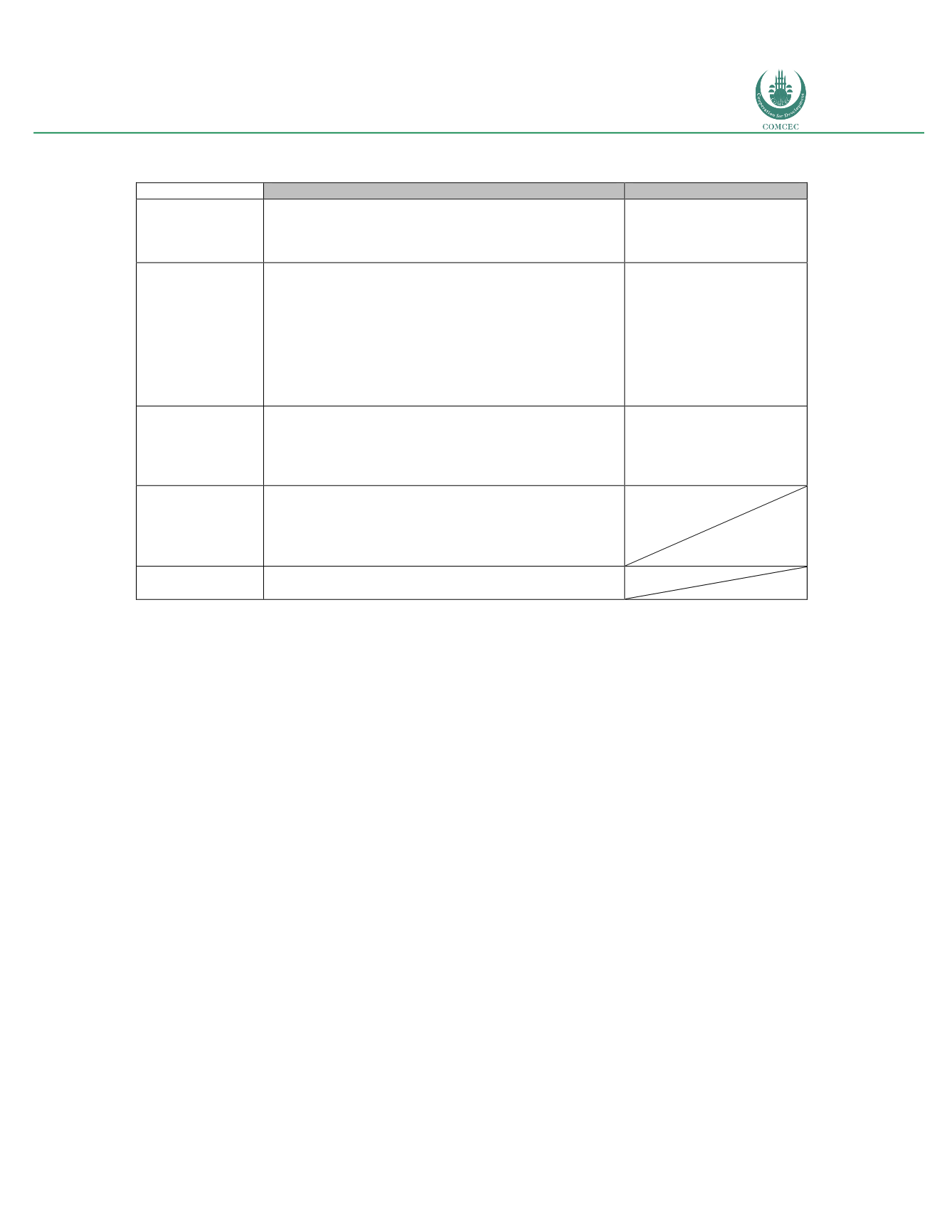

Increasing Broadband Internet Penetration
In the OIC Member Countries
113
Table 54: Cote d’Ivoire: Factors influencing broadband capital spending
Positive incentives
Negative incentives
Government
demand promotion
policies
•
Tax exemption on terminal equipment
•
One citizen, one computer program
•
Wireless carriers cannot
sign up a customer if he
does not produce a valid
ID
Government
supply Policies
•
Deploying a national fiber optic backbone network to
reduce long-haul connectivity and improve the business
case for deploying broadband distribution networks in
remote areas
•
Auction of technology-agnostic universal spectrum
licenses for deployment either 3G or 4G technologies
•
Promote sharing of broadband infrastructure, such as
backhaul and towers
•
Rules for accelerated depreciation of equipment
•
Spectrum license renewal
policies (15 years,
renewal payment)
•
No tax exemption for
imported network
equipment
Local Factors
•
Urban development
•
Time delays for obtaining
construction permits
from municipalities
•
Negotiating construction
terms with labor unions
Macro-Factors
•
Project e-gov: digitizing the whole government
administration
•
Decentralization of industries to the interior of the
country
•
Promotion of foreign direct investment
Competition
factors
•
Protect market position
•
Gain market share
Source: Telecom Advisory Services analysis
V.1.3. Institutional structure and policies for promoting broadband
Institutional structure, policies and strategies regarding broadband market
The institutional architecture regulating the telecommunications sector includes three
agencies:
•
The Agence de Régulation des Télécommunications de Cote d’Ivoire (ARTCI)
•
The Agence Nationale de Service Universel de Télécommunications (ANSUT)
•
Agence Ivoirienne de Gestion de Fréquences Radioélectriques
The first two agencies report to the
Ministère de l’Economie Numérique et de Postes
.
Cote d’Ivoire assigns regulatory authority of telecommunications, and consequently
broadband, to the
Autorité de régulation des télécommunications/TIC de Cote d’Ivoire
(ARTCI).
This agency is presided by a regulatory board responsible for the technical, legal
administrative and financial management of ARTCI. The board is comprised of seven members.
The organization structure of ARTCI includes nine departments:
•
Telecommunications Activities
•
Legal Affairs
•
Resource Allocation and Controls
•
Information Systems and Network Security
•
Economic Affairs and International Cooperation
















